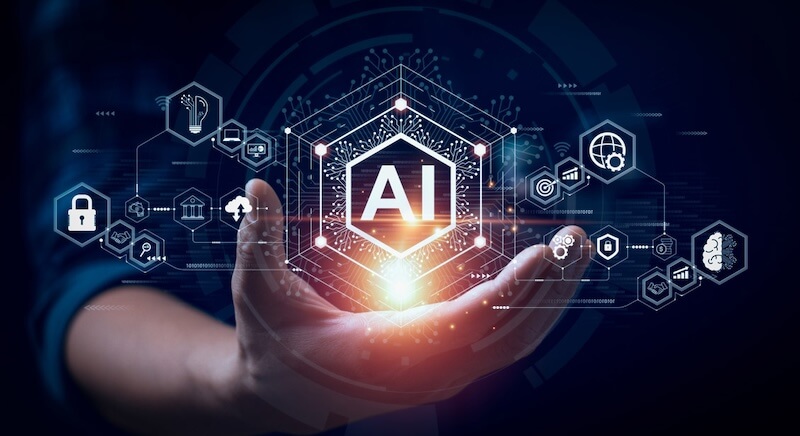Artificial intelligence (AI) is rapidly changing the landscape of human resources, offering unprecedented opportunities to streamline processes and enhance the employee experience. As companies navigate the complexities of today's workplace, AI is emerging as a critical tool for HR departments looking to optimize their operations and create a more engaging environment for their workforce.
Streamlining HR Processes
AI is automating many of the routine and time-consuming tasks that traditionally burden HR professionals. This includes automating administrative functions and freeing HR teams to focus on strategic initiatives. AI-powered tools can efficiently screen resumes, schedule interviews, and manage employee data, significantly reducing the time and resources required for these activities. For example, AI copilots can accelerate employee search speeds by 95% for HR-related queries. By automating repetitive tasks, AI also helps to reduce employee burnout, increase efficiency and productivity, decrease mistakes and improve time management.
Applicant Tracking Systems (ATS) enhanced with AI can scan resumes, rank candidates, and even conduct initial interviews using chatbots, which speeds up the hiring process. AI-powered hiring tools can reduce recruitment costs by up to 30% and reduce the time-to-hire by an average of 50%. Moreover, AI can minimize unconscious bias in hiring by anonymizing resumes and using structured interviews. AI algorithms can sift through thousands of resumes in seconds, identifying candidates whose qualifications closely match job descriptions.
AI is also being used to automate payroll and benefits administration, ensuring error-free processing of salaries and tax compliance. Smart scheduling tools optimize schedules, ensuring fairness and productivity, while AI monitors regulatory updates to ensure organizations stay compliant effortlessly.
Enhancing the Employee Experience
Beyond automation, AI is playing a key role in enhancing the employee experience. AI-powered chatbots and virtual assistants can provide instant responses to employee queries about policies, benefits, and payroll, freeing up HR representatives for more complex issues. These tools are available 24/7, providing employees with the support they need, when they need it.
AI enables personalized learning and development opportunities tailored to individual employee needs and career goals. AI-driven learning platforms can provide customized training recommendations based on an individual's skills, career goals, and learning history. Using AI assistants in career development tools can also boost employee satisfaction by 25%. Furthermore, AI is being used to foster a positive digital employee experience, streamlining the onboarding process and assisting with resource management.
AI can analyze employee data to predict turnover risks, allowing HR to proactively address concerns before talent leaves. AI also enhances communication and collaboration across teams by providing real-time translations and analyzing chat sentiment. AI-driven tools safeguard remote workers by identifying and mitigating cyber threats.
Addressing Challenges and Concerns
Despite the numerous benefits, HR teams hesitate to adopt AI, citing a lack of strategy, concerns about ethics, and data readiness. To ensure ethical and effective use of AI, companies must prioritize transparency, data privacy, and algorithmic fairness. Organizations must clearly communicate how AI-driven personalization is used in career development and performance tracking, and avoid excessive monitoring of employee activities.
To successfully implement AI in HR, leaders must invest in upskilling and reskilling their teams. HR professionals need to develop data literacy and technological skills to effectively leverage AI tools. HR leaders will be at the forefront of ensuring companies meet their business goals by focusing on the people side of the transformation.
The integration of AI in HR is expected to deepen, with a growing percentage of organizations using AI for workforce planning and personalized career development plans. By 2025, AI will be an essential tool for organizations in personalizing employee benefits and driving decision-making. AI is also expected to save organizations trillions by enhancing efficiency and productivity. Ultimately, AI will transform HR into a strategic function, enabling HR professionals to focus on building high-performing teams and fostering an exceptional employee experience.















